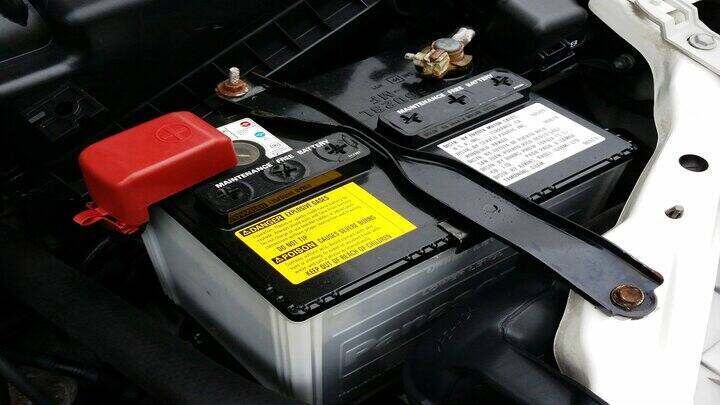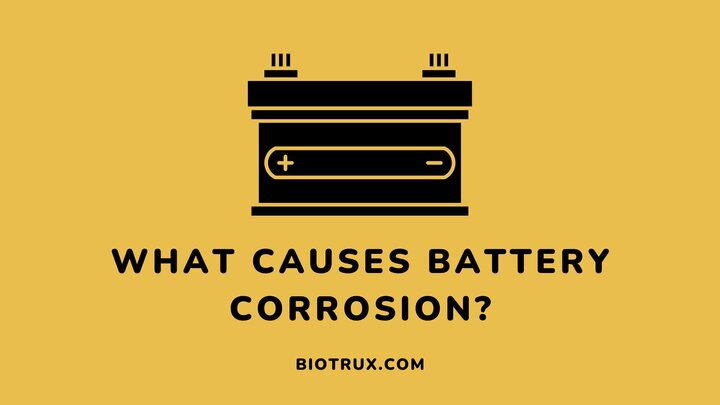Battery terminals are made of metal and corrode upon exposure to moisture or non-lubricating fluid. What causes corrosion the most in a battery is leakage. Other causes include sulfation and overcharging.
Battery corrosion has various implications. It is usually responsible for poor performance and electrical problems in cars and other electronic devices. However, this does not mean such a battery is damaged.
This guide is a complete breakdown of the common causes of battery corrosion, their implications, and how they can be fixed.
Common Causes of Battery Corrosion
When a battery is corroded, the energy flow through its terminals becomes less efficient. Let’s take a look at some of the most common causes of battery corrosion:
1. Leakage
This is very common in refillable batteries. When you overfill them with distilled water, the sulfuric acid in the battery will be forced to overflow and come in contact with metal terminals. This results in corrosion.
2. Escaping gasses
Aside from leakage and exposure to water or acid, escaping gasses can lead to battery corrosion. When batteries are in action, they release corrosive gasses capable of causing corrosion upon contact with battery terminals.
3. Overcharging
Overcharging your battery puts it under unnecessary stress. This stress increases the temperature of the battery and expands it. This creates enough loopholes for the corrosive liquid to come in contact with battery terminals and cause corrosion.
4. Battery age
Another major risk factor for corrosion is battery age. When a battery is old or nearing the end of its lifespan, there is a high chance corrosion will ensue or become recurrent.
Does Battery Corrosion Mean a Bad Battery?
For example, if a car battery is corroded, such a car might be difficult to start. When it starts, the battery may not be able to power the electronic component of the car fully.
In other electronics, corrosion (if not cleaned) may result in the complete loss of function. The leaking acid will eventually find its way deep into the device, destroying its core components.
How to Fix a Corroded Battery Terminal

Cleaning battery corrosion in cars and other electronic devices is pretty easy. You can opt for battery cleaners, baking soda, white vinegar, or just rinse and dry the terminal.
But before that, let’s see the necessary steps required:
1. Loosen the cables
Once you spot residue accumulation on top of your battery, you must disconnect the cables linking to the terminals. This eliminates the risk of electrocution during the procedure.
If you can’t remove and clean the corrosion within the device (for example, in a car), you should remove the battery before cleaning.
2. Inspect the cables for damages
This is crucial when fixing corrosion in car batteries and other electrical systems. Deep corrosion can eat up cables. Such cables must be replaced at once.
3. Remove the corrosion
Removing the corrosion requires three major steps. Softening the debris on the battery terminals, gently scraping them using a soft fiber cloth, and allowing them to dry.
The best way to do this is to use commercial-grade battery cleaners. Alternative methods include using baking soda or white vinegar to break down the residue and clean it. You can also scrape sticky residue with a bristle brush (if there is no baking soda at home) and clean the terminals.
After cleaning, you may use compressed gas to remove remnants from the battery and slot before allowing it to dry.
FAQs
How do you prevent battery corrosion?
The best way to prevent battery corrosion is to regularly apply grease to the terminals.
You can get these terminal protectors in any auto store near you.
Can you use coke to remove battery corrosion?
Yes, you can use coke to remove battery corrosion.
It is safe because its acidity does not react with the sulfuric acid in the battery, should there be any contact.
What does putting salt on a battery do?
Exposing a battery to salt will improve the flow of electricity between its electrode resulting in higher voltage.
Conclusion
The appearance of corrosion on top of your battery can be scary, but it does not mean your battery is bad. Instead, it implies that the battery is probably leaking, exposed to moisture, or is getting old and would soon need a replacement.
You can prevent this manifestation by regularly applying grease around your battery’s terminals. If it is too late, and you need to remove the corrosion, break it down and remove it gently via any options explained in this guide.
Finally, opting for lithium batteries is the best way to prevent corrosion.
I hope you found this guide helpful. To better understand the various implications of a corroded battery, please see if corroded terminals drain a car battery.
Thanks for reading.

